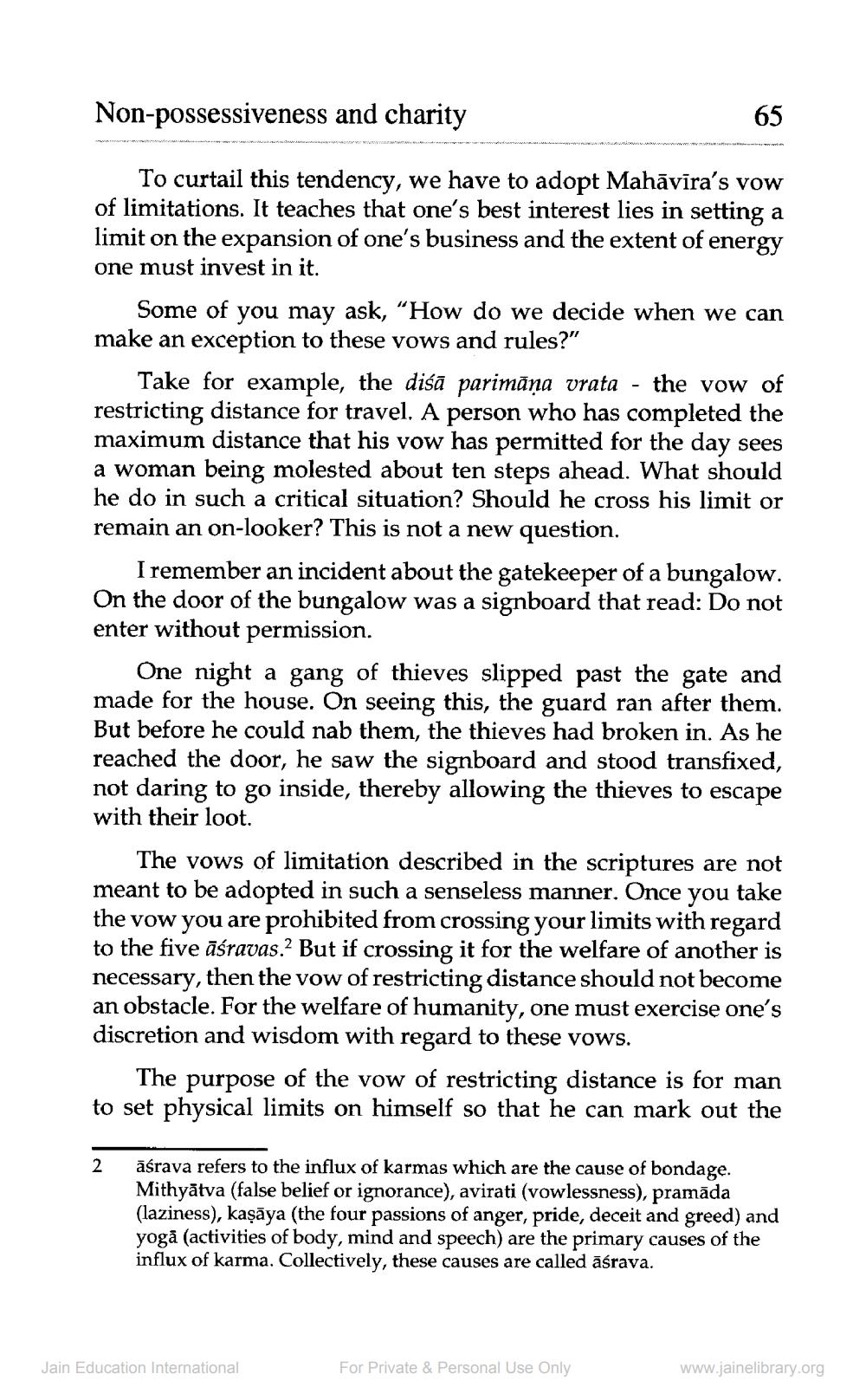________________
Non-possessiveness and charity
To curtail this tendency, we have to adopt Mahāvīra's vow of limitations. It teaches that one's best interest lies in setting a limit on the expansion of one's business and the extent of energy one must invest in it.
Some of you may ask, "How do we decide when we can make an exception to these vows and rules?"
Take for example, the disa parimāna vrata the vow of restricting distance for travel. A person who has completed the maximum distance that his vow has permitted for the day sees a woman being molested about ten steps ahead. What should he do in such a critical situation? Should he cross his limit or remain an on-looker? This is not a new question.
65
I remember an incident about the gatekeeper of a bungalow. On the door of the bungalow was a signboard that read: Do not enter without permission.
-
One night a gang of thieves slipped past the gate and made for the house. On seeing this, the guard ran after them. But before he could nab them, the thieves had broken in. As he reached the door, he saw the signboard and stood transfixed, not daring to go inside, thereby allowing the thieves to escape with their loot.
The vows of limitation described in the scriptures are not meant to be adopted in such a senseless manner. Once you take the vow you are prohibited from crossing your limits with regard to the five aśravas.2 But if crossing it for the welfare of another is necessary, then the vow of restricting distance should not become an obstacle. For the welfare of humanity, one must exercise one's discretion and wisdom with regard to these vows.
2
The purpose of the vow of restricting distance is for man to set physical limits on himself so that he can mark out the
Jain Education International
āśrava refers to the influx of karmas which are the cause of bondage. Mithyātva (false belief or ignorance), avirati (vowlessness), pramāda (laziness), kaṣāya (the four passions of anger, pride, deceit and greed) and yoga (activities of body, mind and speech) are the primary causes of the influx of karma. Collectively, these causes are called āśrava.
For Private & Personal Use Only
www.jainelibrary.org




